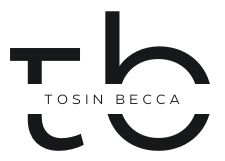
Unlocking the Potential of Blockchain in Waste Reduction
Introduction
Waste reduction is a pressing global challenge that requires innovative solutions to minimize environmental impact and promote sustainability. Blockchain technology, renowned for its transparency, immutability, and decentralized nature, holds significant potential to revolutionize waste reduction efforts. In this blog post, we will explore how blockchain can unlock new possibilities in waste reduction and pave the way for a more sustainable future.
- Transparent and Traceable Supply Chain
Blockchain technology offers a transparent and traceable supply chain for waste materials. By recording every stage of the waste management process on the blockchain, from generation to disposal or recycling, stakeholders can access a detailed and auditable record of waste movements. This transparency enhances accountability, prevents illegal dumping, and ensures compliance with environmental regulations. Additionally, the traceability provided by blockchain allows for efficient monitoring of waste volumes, recycling rates, and the identification of areas for improvement within the supply chain.
- Improved Waste Tracking and Management
Blockchain can improve waste tracking and management through the use of Internet of Things (IoT) devices and sensors. These devices can be integrated with the blockchain to collect real-time data on waste generation, collection, and processing. The data captured by IoT devices can include information such as waste composition, location, and quantity. This real-time tracking enables waste management companies to optimize collection routes, identify waste hotspots, and allocate resources efficiently. By leveraging blockchain technology, waste management stakeholders can make data-driven decisions to improve waste management processes and reduce waste generation.
- Incentivization Mechanisms for Behavior Change
Blockchain can introduce incentivization mechanisms to encourage individuals and businesses to adopt sustainable waste reduction practices. By leveraging blockchain-based token systems, stakeholders can be rewarded for responsible waste disposal, recycling, and waste reduction efforts. These tokens can be exchanged for discounts, products, or other incentives, creating a tangible reward system. By incentivizing sustainable behavior, blockchain solutions motivate stakeholders to actively participate in waste reduction initiatives, leading to increased recycling rates, reduced waste generation, and the transition towards a circular economy.
- Collaborative Platforms for Knowledge Sharing
Blockchain technology enables the creation of collaborative platforms for waste reduction initiatives. These platforms can connect waste management companies, recycling facilities, governmental organizations, and individuals in a decentralized network. The decentralized nature of blockchain ensures secure data sharing and promotes knowledge exchange. Stakeholders can share best practices, innovative ideas, and research findings, fostering collaboration and driving continuous improvement in waste reduction efforts. By leveraging blockchain-enabled platforms, waste management stakeholders can collectively work towards more effective and sustainable waste reduction strategies.
-
- Verification and Trust in Sustainable Claims
Blockchain technology can enhance trust and verification in sustainable claims related to waste reduction. By recording information about the origin, processing, and disposal of waste materials on the blockchain, stakeholders can verify the authenticity of sustainable claims. This verification is particularly important in industries where recycled materials are used, such as packaging or construction. Blockchain ensures transparency and immutability, allowing consumers and businesses to have confidence in the sustainability claims of products. This trust promotes responsible purchasing decisions, further encouraging waste reduction and the demand for sustainable products.
Conclusion
Blockchain technology has the potential to unlock new possibilities in waste reduction by providing transparency, traceability, and incentivization mechanisms. Through its transparent and traceable supply chain, improved waste tracking and management, incentivization mechanisms for behavior change, collaborative platforms, and verification of sustainable claims, blockchain empowers stakeholders to actively participate in waste reduction efforts. By harnessing the potential of blockchain, we can drive towards a more sustainable future, where waste is minimized, resources are optimized, and environmental impact is reduced. Together, let’s unlock the potential of blockchain in waste reduction and build a greener and more sustainable world.


